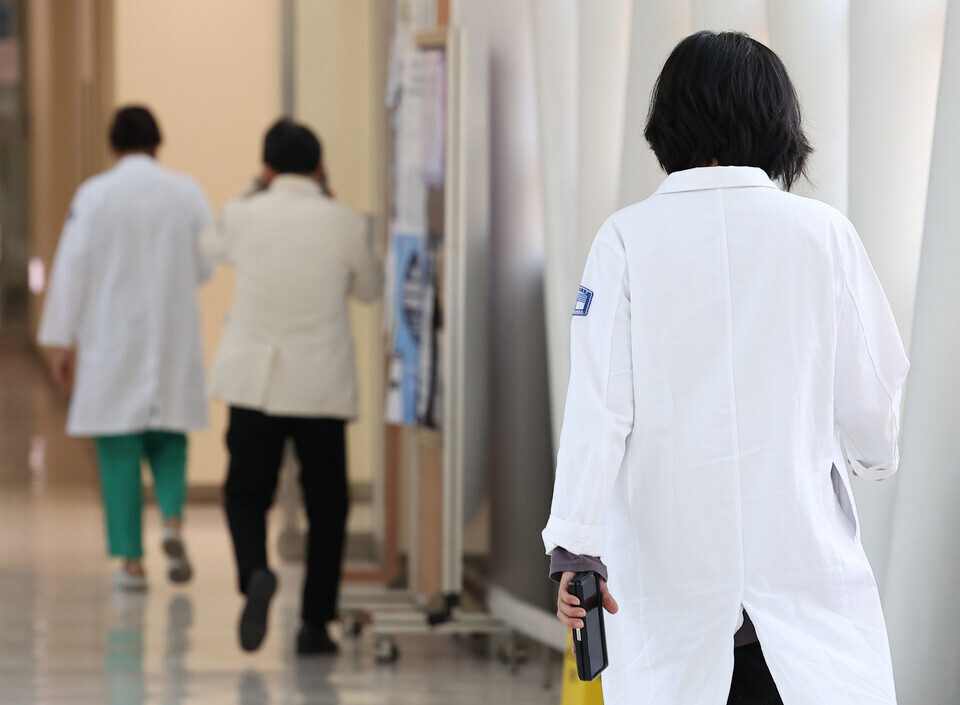
The South Korean government is advancing a controversial plan to shield doctors from prosecution in cases of patient deaths during essential medical procedures, provided there is an agreement with the bereaved family. This initiative, aimed at mitigating the "judicial risk" faced by doctors and addressing the growing reluctance to practice in critical medical fields, has ignited fierce opposition from patient advocacy groups.
The Ministry of Health and Welfare unveiled the proposal at a recent policy debate, citing the need to alleviate the burden of potential legal repercussions that contribute to the shortage of doctors in essential medical services. A striking example highlighted was the 2017 Ewha Womans University Mokdong Hospital newborn death case, where medical staff were acquitted after a protracted five-year legal battle. This case is believed to have significantly impacted the declining interest in pediatrics among medical residents.
Under the current system, doctors can avoid prosecution only in cases of minor medical accidents with patient consent. However, severe cases, including fatalities, can lead to prosecution even if the victim's family does not seek criminal charges.
The government's new plan seeks to broaden this exemption, extending it to serious injuries such as patient unconsciousness, regardless of whether the medical care was essential or non-essential, provided an agreement is reached. In cases without an agreement, prosecution remains an option. However, essential medical care would receive enhanced judicial protection.
A key component of the plan is the establishment of a Medical Accident Deliberation Committee, comprising medical, legal, and patient representatives. This committee would assess cases of alleged medical malpractice within 150 days and recommend against prosecution if no serious negligence is found. The government intends to legally mandate that prosecutors respect the committee's findings.
In the event of a patient's death, the government is exploring the possibility of complete immunity for doctors in essential medical care if a settlement is reached with the family. However, this aspect of the plan is contingent on achieving "social consensus," reflecting the strong opposition from patient groups. Even if prosecuted, doctors in essential medical fields would be eligible for sentence reductions or waivers, taking into account the urgency of the situation and their efforts to save lives.
To balance these protections, the government proposes mandatory medical malpractice liability insurance for medical institutions, ensuring that patients receive compensation in accordance with dispute resolution outcomes.
The definition of "essential medical care" will be broad, encompassing procedures critical to national health and safety, including emergency treatments.
Patient advocacy groups have voiced strong condemnation of the plan. Lee Eun-young, director of the Korea Patient Group Federation, expressed concerns that it would weaken victims' rights by potentially classifying serious injuries as simple negligence. Ahn Ki-jong, head of the Patient Group Federation, labeled the proposal a "privilege law for doctors only," unprecedented in its scope.
The government's initiative is expected to face significant hurdles in the legislative process, with patient groups vowing to oppose what they perceive as an unjust and discriminatory measure.
[Copyright (c) Global Economic Times. All Rights Reserved.]






























